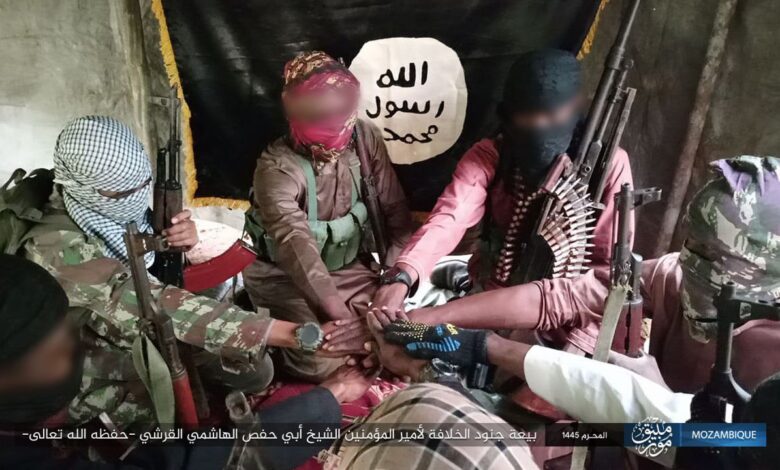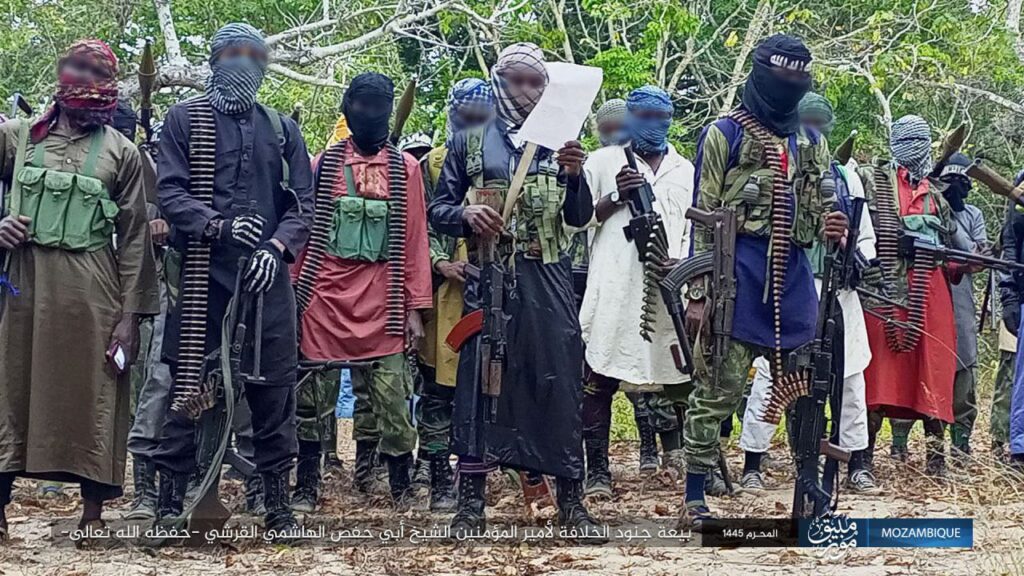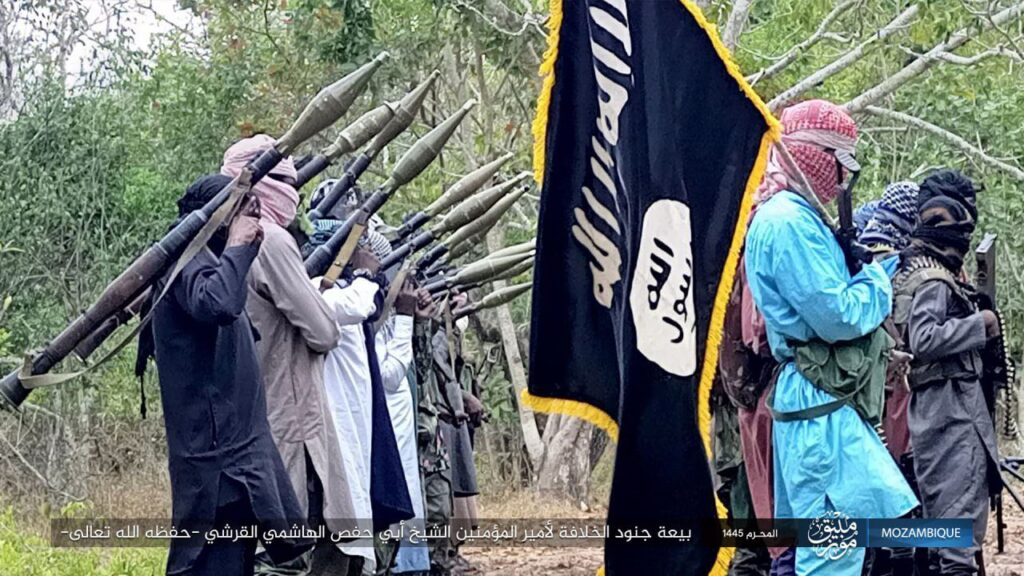Mozambique Grapples With Escalating Violence As Terror Attacks Persist
Despite their relatively small fighter population and late arrival in the IS jihadi circle, the group's ceaseless attacks show their eagerness to be recognised as an integral part of the global terrorist network.

Members of the Islamic State’s affiliate in Mozambique have continued to wreak havoc in the rural areas of the coastal city of Mocimboa da Praia in Northern Mozambique, a trend that’s led to an increase in the number of casualties it is claiming relative to other branches of the international terrorist organisation.
The increase in reported fatalities can be gathered from Al-Naba, the weekly IS propaganda newspaper.
The terrorists, locally known as Al-Shabaab (not the same as the Al-Shabaab operating in Somalia) or Ahlussunnah Wal Jama’a (ASWJ), share identical ideologies and operational strategies with Boko Haram in Nigeria. Before attempting to enact their version of Islamic law through violent means, they boycotted Mozambican hospitals, schools, and other public institutions.
Issues 404 and 405 of Al-Naba published between Aug. 14 and 21 show that IS-Mozambique claimed to have caused 17 and 14 fatalities, respectively, surpassing other affiliates outside Africa, such as in Syria and Khorasan (South and Central Asia).
The incessant attacks and killings show that the group is keen to be acknowledged as a core wing of the Islamic State despite arriving late in the organisation’s network. It has intensified its operations despite having a smaller insurgent population than other affiliates on the continent, such as the provinces in West and Central Africa (ISWAP and ISCAP).
IS-Mozambique ambushes security personnel and civilians without making much distinction based on religion. The terrorists mostly operate in small groups in rural areas or outlying hamlets. During attacks, usually taking place at night, they kill people, robbing them of their belongings, and setting buildings on fire.
Mozambique’s defence minister Cristovao Chume requested in March 2023 that foreign military troops stationed there should cooperate with local security forces in order to end the violent extremism that has bedevilled the country since 2017.
Terrorism is still a problem, he said, and despite their vulnerability, the terrorists still actively try to indoctrinate people, especially the youth.

In 2018, the terrorists conducted a coordinated attack on numerous villages in the northern province of Cabo Delgado, killing over 50 people and displacing hundreds. This attack, which was the deadliest at that time, brought attention to the mounting dangers posed by the terrorists in Mozambique and security gaps in rural areas.
In 2020, they beheaded more than 50 people in Muatide, where they turned a football pitch in the village into an “execution ground”.
The group’s most brazen strike was on March 24, 2021, when 200 terrorists invaded the town of Palma in northern Mozambique, which is home to foreigners and Total Liquefied Natural Gas (LNG) contractors. The four-day attack led to the death of at least 12 locals, the destruction of critical infrastructure, and a hostage situation involving hundreds of people.
While the Mozambican government, working with Rwandan and other troops, is stepping up the fight against the terrorists to entice oil investors back to the country, the terrorists are also attempting to thwart that effort by escalating their attacks to prove their relevance in the international jihadi space.
From ASWJ to IS-Mozambique
Before the Islamic State claimed responsibility for an attack carried out by the ASWJ through its official Telegram channel in June 2019, the group that would later become the official Mozambican branch of IS had long been engaged in terrorist activities.
“The Soldiers of the Caliphate,” a message from IS official Telegram in 2018, praised ASWJ for thwarting an attack by the Mozambican army in the settlement of Mitope. The claim was made at a time when the Islamic State experienced setbacks in Syria and Iraq and looked for affiliate activity to bolster its propaganda.
After the ASWJ claimed responsibility for yet another attack in July 2019, an official video appeared three weeks later in which their members swore allegiance to the Islamic State as a branch of the Islamic State Central Africa Province (ISCAP). Since then, they have been identified in propaganda messaging as an ISCAP wing before receiving a formal wilaya (province) in the future.

ASWJ’s origins can be linked to a number of complex local issues, such as social unrest, religious extremism, and economic exclusion. The organisation’s leadership emerged from the local Salafi community and started out as an insurgent group with regional goals. It mainly focused on utilising the area’s natural resources and challenging governmental authority.
Over time, ASWJ acquired a more extremist ideology and began collaborating with international jihadist movements, drawing inspiration from Kenyan Al-Shabaab ideologue Aboud Rogo. As a result, even though it was not formally affiliated with them, it was given the Al-Shabaab nickname. Early group members frequently arrived from nearby areas and established social networks. These networks made it easier for the recruitment and dissemination of extremist ideology.
ASWJ conducts many of its operations in Cabo Delgado’s coastal settlements. The previously picturesque and tranquil fishing communities turned into hotspots of unrest. The group has deliberately exploited its location near major maritime trade routes to intercept ships, engage in criminal activity, and raise money for its insurgency.
Its rural strongholds are hidden by Cabo Delgado’s vast hinterlands, which extend well inland. The terrorists find refuge in dense forests and far-off communities, where they can reassemble and carry out operations with impunity. The terrain makes it difficult for government forces to drive them out.
Humanitarian crisis
Along with leaving a trail of bloodshed and unrest, the IS-led insurgency in Mozambique has also sparked a severe humanitarian crisis in the province of Cabo Delgado. The inhabitants of this region are struggling with the harsh reality of displacement, food insecurity, and constrained access to critical services as the conflict rages on.
At least 2 million people are reportedly in need of immediate humanitarian assistance and protection in Cabo Delgado and the nearby provinces of Niassa and Nampula, according to the European Commission. This includes more than a million people who were evicted from their homes.
Acute food insecurity is estimated to affect around 3.5 million people in Northern Mozambique, 1.2 million of whom live in Cabo Delgado and the nearby provinces, according to the Commission.
However, information shared by the UN Office for the Coordination of Humanitarian Affairs in June showed that this number is declining. While many people still live in makeshift housing, others are moving back into their original districts, particularly because it is extremely difficult for IDPs to live elsewhere. The number of returnees has climbed by 18 per cent to 420,000 persons, according to the data.
“The vulnerability of hundreds of thousands of IDPs and returnees who continue to rely on humanitarian assistance to survive cannot be underestimated,” said the UN agency.
“Prompted by the search for better livelihood opportunities, returns are taking place in remote areas and, at times, in areas where pockets of insecurity persist, or in areas where the government’s ability to provide the full range of basic social services has been hampered by the widespread destruction of critical public infrastructures and the partial return of the civil administration.”
Summary not available.
Support Our Journalism
There are millions of ordinary people affected by conflict in Africa whose stories are missing in the mainstream media. HumAngle is determined to tell those challenging and under-reported stories, hoping that the people impacted by these conflicts will find the safety and security they deserve.
To ensure that we continue to provide public service coverage, we have a small favour to ask you. We want you to be part of our journalistic endeavour by contributing a token to us.
Your donation will further promote a robust, free, and independent media.
Donate HereStay Closer To The Stories That Matter




